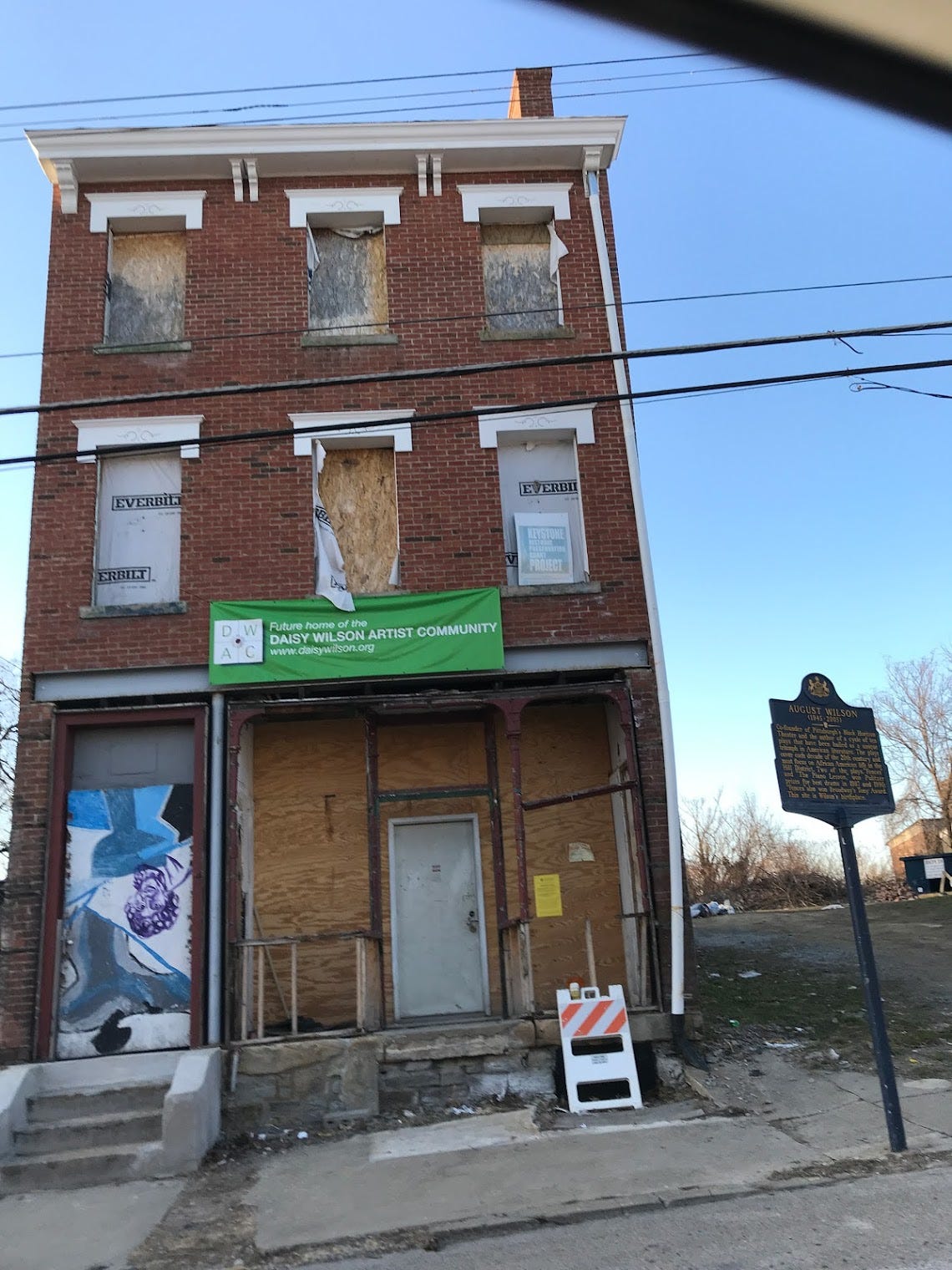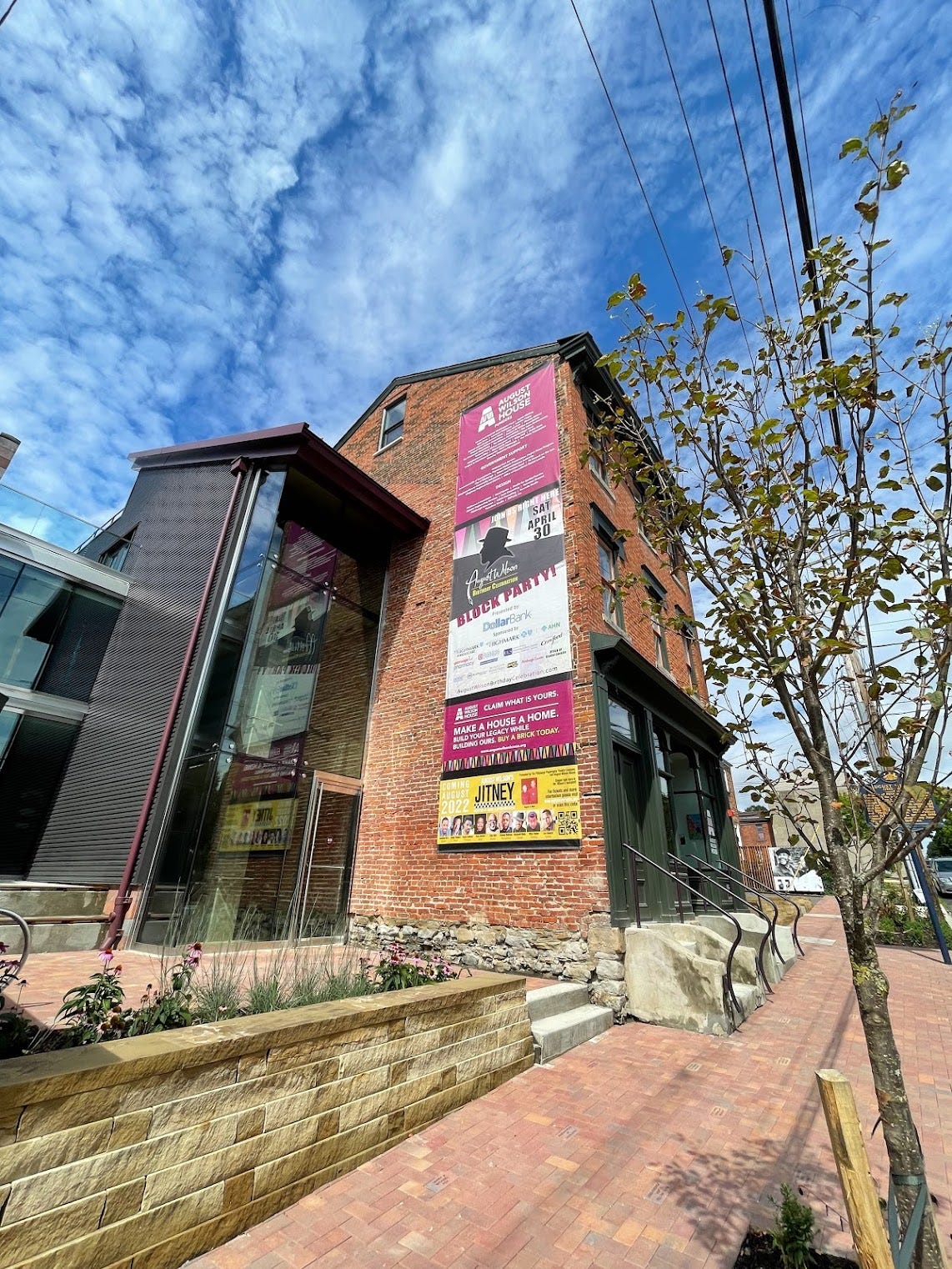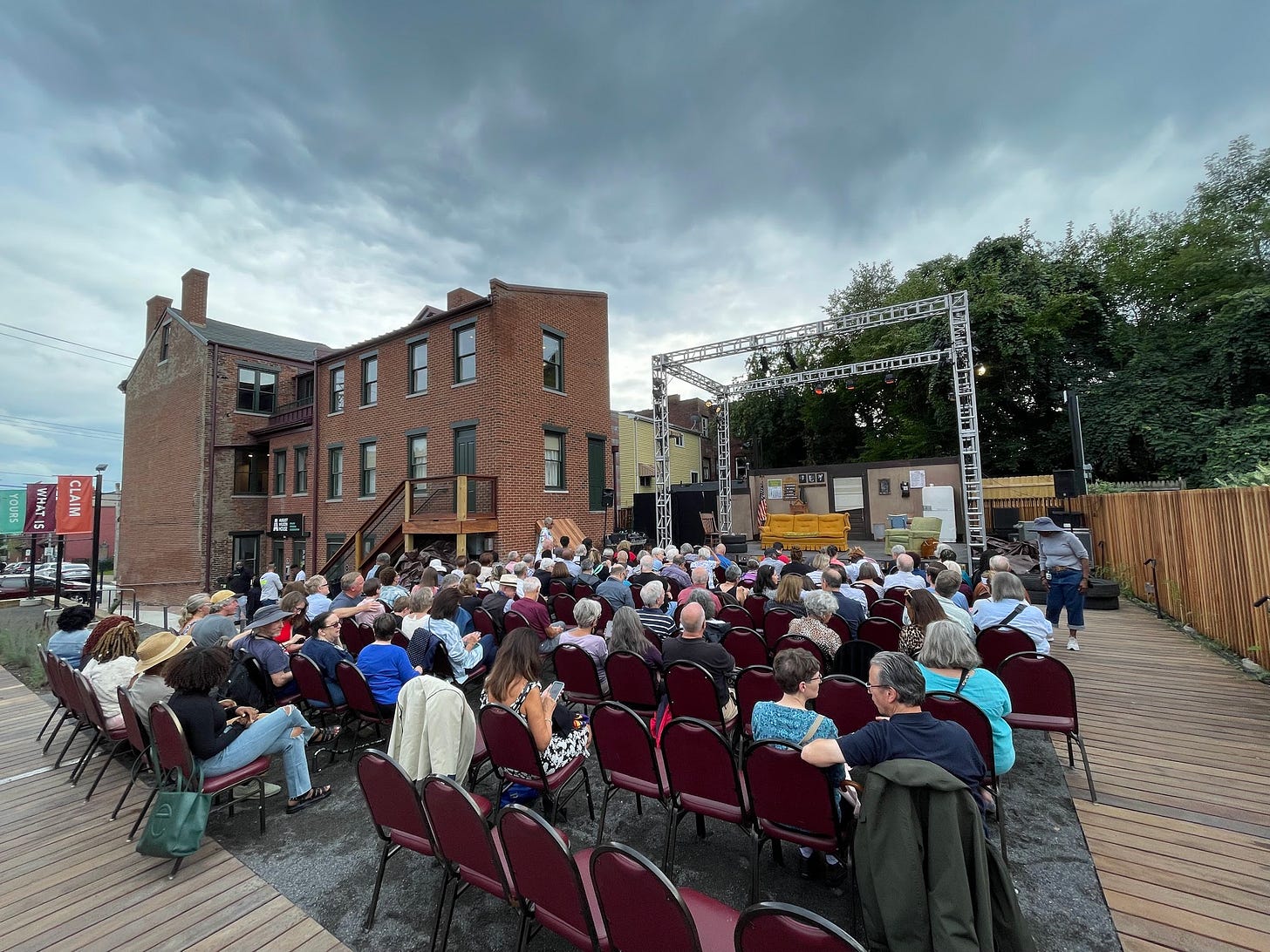Finally catching up to August Wilson's 'Jitney'
As a big fan of Pittsburgh's illegal taxi service and the benefits it's brought to Pittsburgh's black community for almost 100 years, I've always wanted to see Wilson's play. On Sept. 11 I did.
August Wilson’s ‘Jitney’ will continue its run at the August Wilson House in Pittsburgh’s Hill District through Sept. 18. According to drama experts from here to London — the theater reviewers — it has many pluses and few flaws.
According to me — a rare theatergoer but a guy who has played poker with some of Pittsburgh’s top theater professors — it was a great treat.
A trip back to 1977 Pittsburgh, ‘Jitney’ is set in one of the scores of jitney stations that then dotted the black neighborhoods of Pittsburgh.
The 24/7 black-market car service — provided mainly by older men in big four-door cars — was totally illegal, totally unregulated or policed and invisible to 99 percent of white Pittsburghers.
Jitneys were a necessity because the city’s under-sized Yellow Cab monopoly rarely picked up or dropped off blacks, eschewed short trips and focused primarily on taking business people to and from the airport.
To those who know nothing about jitneys, the play doesn’t provide as much explicit information as it should about their value to the black community or about the city residents who had to rely on jitneys to get to church on Sunday, to get to a doctor’s office on Wednesday or to get home safely from a bar late on a Friday night.
Below are a few photos I took Sunday evening at the August Wilson House, followed by a deliberately friendly article I wrote for the Post-Gazette in 1994 about the city’s jitney system.
The jitney story was a sidebar to my gigantic Page 1, two-day attack on the city’s horrible, expensive and often racist Yellow Cab monopoly. The jitney system still exists and unlike Yellow Cab it was not decimated in 2015 by the arrival of thousands of Uber and Lyft drivers.
During my career as a part-time Uber driver (2015 to 2020, 7,000-plus trips), I often drove by the August Wilson House to see how its rehabilitation was going. It wasn’t.
But then thanks to a boodle of money from the generous likes of Denzel Washington and his Hollywood pals, in the last year Wilson’s childhood home was transformed from a broken-down brick hulk to a multi-use community treasure.
Sunday, Sept. 11, 2022 — ‘Jitney’
*****
August Wilson — born in 1945 in Pittsburgh’s Hill District — is mentioned briefly in my history book ‘30 Days a Black Man,’ which goes into great detail about the Hill and the Pittsburgh Courier.
`My friend Bob Hoover, the former Post-Gazette book editor, wrote this piece for the PG in 2010 that describes how Wilson found the material that became “the foundation play” of his 10-drama cycle of the 20th century that featured Pittsburgh’s Hill District and included “Fences” and “The Piano Lesson.”
The book ‘Smoketown’ by Mark Whitaker goes into greater detail about Wilson’s life and work, which along with the Courier, jazz and Negro League baseball, contributed to the immense cultural power of the Hill District from the 1930s to the 1980s.












fascinating and informative piece !